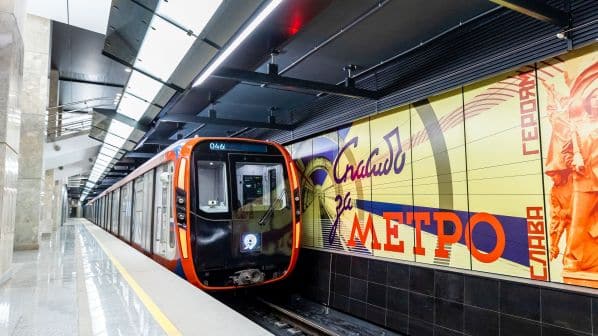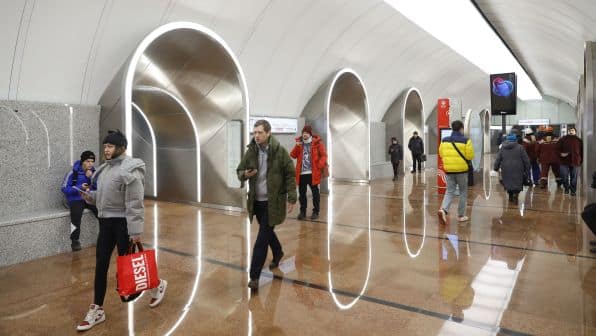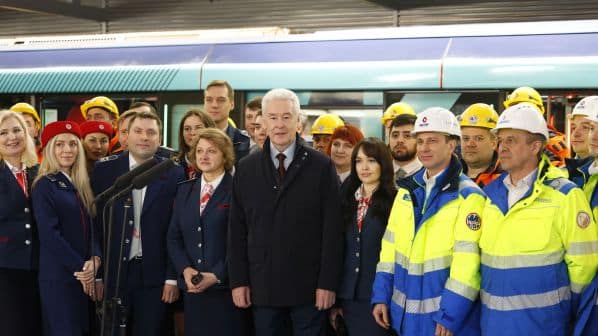RUSSIAN president, Mr Vladimir Putin, and mayor of Moscow, Mr Sergey Sobyanin, formally opened the final sections of the Big Circle Line (BCL) on March 1, marking the completion of what Moscow Metro says is the world’s longest circular metro line.
Operated as Line 11 of the Moscow Metro, the BCL has a total length of 70km and is 13km longer than Line 10 in Beijing. Line 11 now serves a total of 31 stations, 24 providing interchange with existing or planned routes of the metro and suburban railway networks.
The final sections of the BCL to open included Maryina Roscha - Sokolniki to the north of the city centre, serving one intermediate station at Rizhskaya.
To the southeast, the Tekstilsсhiki - Varshavskaya section also opened on March 1 and serves intermediate stations at Pechatniki, Nagatinskiy Zaton, Klenoviy Bulvar and Kashirskaya.
Under a staged construction programme, work to build the BCL began in November 2011 and was completed in 2022. The first section opened in 2018, followed in December 2021 by the longest section of the Moscow Metro to enter service at one time, running for 20km with 10 stations.

Moscow Metro says that completion of the BCL marks the biggest change for 70 years to public transport in an urban area that now has 13 million inhabitants and major commuter flows.
Construction of the BCL has brought the metro to new areas of the city and will enable passengers to take more convenient routes that do not require them to travel through the city centre. The new circular route is expected to reduce congestion on other metro lines by up to 25% and cut road traffic in Moscow by up to 15%. The BCL project has taken into account the likely future development of the city over the coming decades and has a large margin of capacity, according to the Moscow city government.
Other forecast economic and social benefits include encouraging development around new stations. The BCL has already produced an increase in property prices of 15% to 20%, according to Moscow Metro.
The new line has created 6000 new posts at Moscow Metro itself and is expected in the next few years to create up to 150,000 further jobs in areas served by the new BCL stations.

All ticket gates on the BCL accept contactless payment by bank card, and two gates in each ticket hall are equipped with Moscow Metro’s biometric fare payment system.
The BCL rolling stock fleet includes the Moscow Metro’s most recent type, the Moscow 2020 train that features wide doors and gangways, USB ports between seats and an air-conditioning and disinfection system.
The new trains are also equipped with a passenger information system that features line diagram displays above the doors and interactive route planners. Passenger comfort is enhanced through improved sound insulation and adaptive lighting which changes intensity according to the time of day.
“We have successfully implemented one of the largest metro construction projects in the world,” says Mr Maksim Liksutov, deputy mayor of Moscow for transport.
“Now that citizens can save up to 45 minutes a day on trips around the city, the BCL will give impetus to the development of the whole of Moscow for decades to come.”
For more data on metro projects around the world, subscribe to IRJ Pro.

